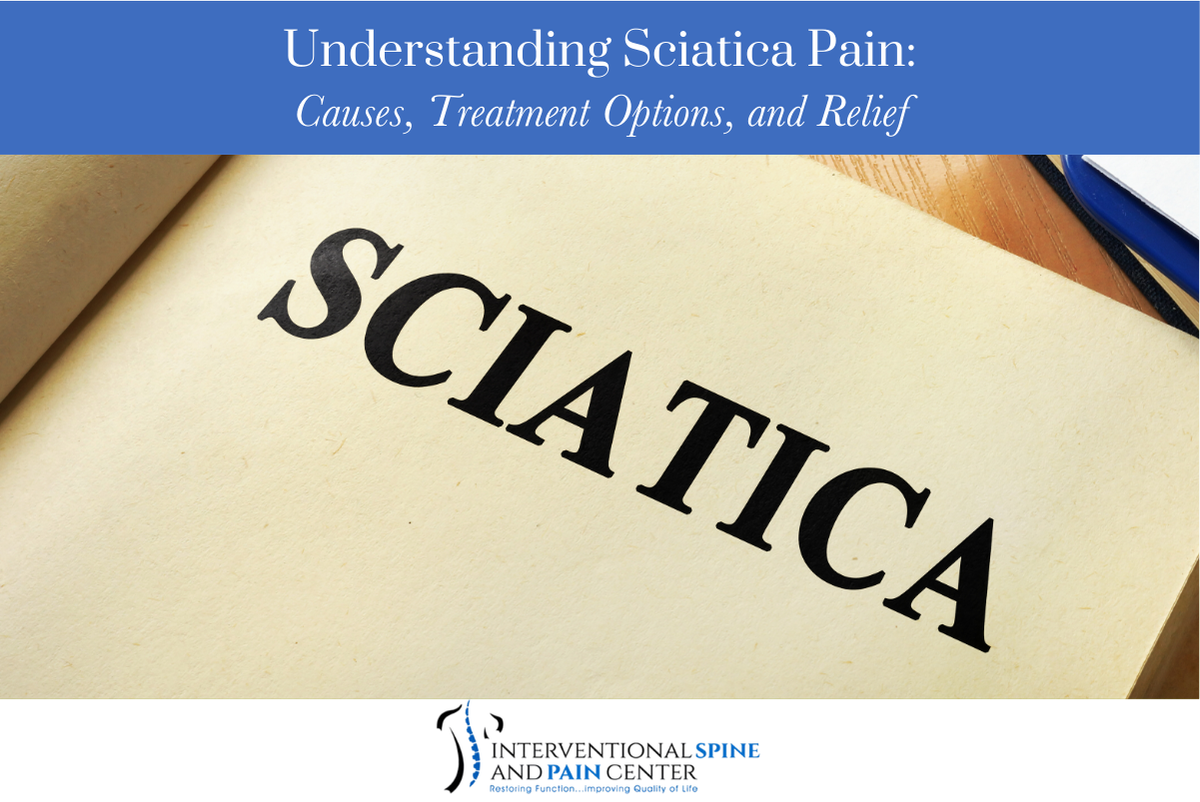
Sciatica is a common yet often misunderstood condition that can significantly affect your quality of life. If you’re experiencing sharp pain, numbness, or tingling radiating from your lower back down one leg, you may be dealing with sciatica. At Interventional Spine and Pain Center, our team specializes in diagnosing and treating sciatica pain to help you get back to your daily life with less discomfort.
What Is Sciatica?
Sciatica refers to pain that follows the pathway of the sciatic nerve, the largest nerve in your body. This nerve runs from your lower back through your hips, buttocks, and down each leg. Sciatica is typically caused by irritation, compression, or inflammation of the nerve. The result is a range of symptoms that can vary from mild discomfort to severe, debilitating pain.
Causes of Sciatica
Several factors can contribute to sciatica, including:
- Herniated or Bulging Discs: When the discs in your spine shift or rupture, they can press against the sciatic nerve.
- Spinal Stenosis: Narrowing of the spinal canal can put pressure on the nerve.
- Degenerative Disc Disease: Aging can lead to wear and tear on the spinal discs, causing irritation to the nerve.
- Piriformis Syndrome: Spasm or tightness in the piriformis muscle, located in the buttock, can irritate the sciatic nerve.
- Injury or Trauma: Accidents or falls can lead to nerve compression.
- Pregnancy: The additional weight and changes in posture during pregnancy may contribute to sciatica.
Symptoms of Sciatica
Sciatica symptoms can vary depending on the severity and underlying cause. Common symptoms include:
- Sharp or shooting pain in the lower back, buttocks, and down one leg
- Numbness or tingling in the leg or foot
- Weakness in the affected leg
- Difficulty standing, sitting, or walking due to pain
Treatment Options at Interventional Spine and Pain Center
At Interventional Spine and Pain Center, we offer personalized, cutting-edge treatments for sciatica to provide effective relief:
1. Conservative Treatments
- Physical Therapy: Strengthening and stretching exercises can improve flexibility and reduce pressure on the sciatic nerve.
- Medications: Over-the-counter pain relievers, anti-inflammatory drugs, and muscle relaxants may alleviate symptoms.
2. Interventional Treatments
- Epidural Steroid Injections: Targeted injections reduce inflammation around the nerve, providing pain relief.
- Nerve Blocks: These injections block pain signals from reaching the brain.
3. Minimally Invasive Procedures
- Radiofrequency Ablation: This procedure uses heat to disrupt the nerve’s ability to transmit pain signals.
- Endoscopic Discectomy: Removing a portion of a herniated disc to relieve pressure on the sciatic nerve.
4. Advanced Therapies
- Spinal Cord Stimulation: Implanting a device that delivers mild electrical signals to the spinal cord, reducing pain perception.
5. Lifestyle and Prevention Guidance
- Education on maintaining proper posture, engaging in regular exercise, and avoiding activities that exacerbate pain.
Comprehensive Q&A Section
Q: How do I know if my pain is sciatica?
A: If your pain radiates from your lower back to your buttocks and down one leg, it could be sciatica. A thorough evaluation by a specialist is essential for an accurate diagnosis.
Q: Can sciatica go away on its own?
A: In some cases, mild sciatica may resolve with rest, stretching, and over-the-counter pain relief. However, persistent or severe symptoms may require professional treatment.
Q: How long does it take to recover from sciatica?
A: Recovery time depends on the severity of your condition and the treatment approach. Some patients find relief within a few weeks, while others may need months of comprehensive care.
Q: Is surgery the only option for severe sciatica?
A: Surgery is typically a last resort. At Interventional Spine and Pain Center, we focus on minimally invasive treatments and conservative options before considering surgery.
Q: What can I do at home to manage sciatica pain?
A: Regular stretching, using heat or ice packs, maintaining a healthy weight, and avoiding prolonged sitting or heavy lifting can help reduce pain.
Why Choose Interventional Spine and Pain Center?
At Interventional Spine and Pain Center, we are dedicated to providing comprehensive care tailored to your unique needs. Our team of experts utilizes advanced diagnostics and state-of-the-art treatments to address the root cause of your pain, not just the symptoms.
With convenient locations in Manchester and Murfreesboro, TN, we are committed to helping you find lasting relief.
Contact Information
Manchester Office
2345 Murfreesboro Hwy
Manchester, TN 37355
Phone: (931) 728-5607
Murfreesboro Office
905 S. Church St
Murfreesboro, TN 37130
Phone: (931) 728-5607
Don’t let sciatica pain hold you back. Contact Interventional Spine and Pain Center today to schedule a consultation and take the first step toward a pain-free life!
